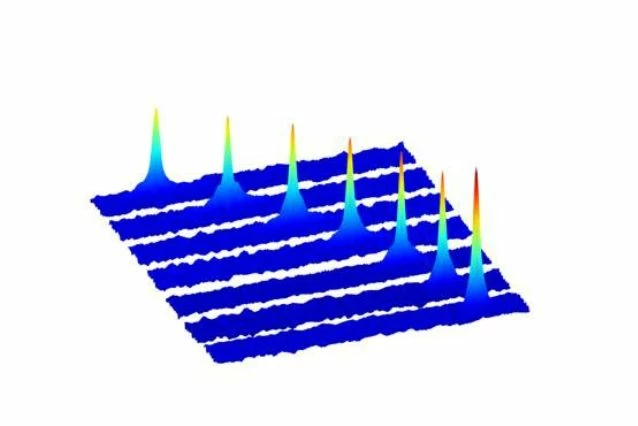
Partner Article
North East quantum physics experts win £1m investment
A team from Newcastle and Durham universities has received £1m to take groundbreaking work on precision measurements for GPS systems to the next stage.
The research will form a central part of the new Joint Quantum Centre Durham-Newcastle, bringing together top physics, chemistry, mathematics and engineering experts from the two universities.
Researchers are using quantum physics to get to grips with microscopic atoms that are colder than outer space, and explore their use for precise measurements.
They received the £1m grant from the Engineering and Physical Sciences Research Council (EPSRC) to look at the atoms’ potential use in industry to create the next generation of rotation sensors and GPS tools.
Project lead Dr Simon Gardiner, of Durham University, said: “Ultracold atoms are ideal systems for studying dynamics far away from equilibrium, due to the very high degree of control available in experiments. “The aim of this project is to understand how to best harness and use this information. For example, this could help improve our ability for precision measurements, which underpin, among other systems, the functioning of the global positioning system (GPS), with the emphasis in the current project being on measurements of relative rotation.”
Prof Nick Proukakis of Newcastle University, said: “Quantum gases is a relatively new area of research, but has rapidly become a well-established and diverse field, working to understand the very essence of matter – how it behaves in its simplest state.” The Joint Quantum Centre, which has pulled together more than 50 academics, researchers, and research students from the two universities, aims to solve the fundamental questions about the behaviour of matter.
Prof Carlo Barenghi, an applied mathematician at Newcastle University, said: “The quantum physics teams at Newcastle and Durham have always worked closely together but this official accreditation puts us deep on the map. “It gives us the opportunity to properly explore joint research opportunities and also bring in colleagues from other research areas who may be able to contribute to this important and exciting branch of science.” The Centre was opened with events in Durham and Newcastle. Top international theoretical physicist Sandy Fetter, of Stanford University in the US, spoke at Durham and Newcastle hosted a one-day conference on developments in quantum physics and chemistry.
This was posted in Bdaily's Members' News section by Karen Dent .
Enjoy the read? Get Bdaily delivered.
Sign up to receive our daily bulletin, sent to your inbox, for free.








 Raising the bar to boost North East growth
Raising the bar to boost North East growth
 Navigating the messy middle of business growth
Navigating the messy middle of business growth
 We must make it easier to hire young people
We must make it easier to hire young people
 Why community-based care is key to NHS' future
Why community-based care is key to NHS' future
 Culture, confidence and creativity in the North East
Culture, confidence and creativity in the North East
 Putting in the groundwork to boost skills
Putting in the groundwork to boost skills
 £100,000 milestone drives forward STEM work
£100,000 milestone drives forward STEM work
 Restoring confidence for the economic road ahead
Restoring confidence for the economic road ahead
 Ready to scale? Buy-and-build offers opportunity
Ready to scale? Buy-and-build offers opportunity
 When will our regional economy grow?
When will our regional economy grow?
 Creating a thriving North East construction sector
Creating a thriving North East construction sector
 Why investors are still backing the North East
Why investors are still backing the North East